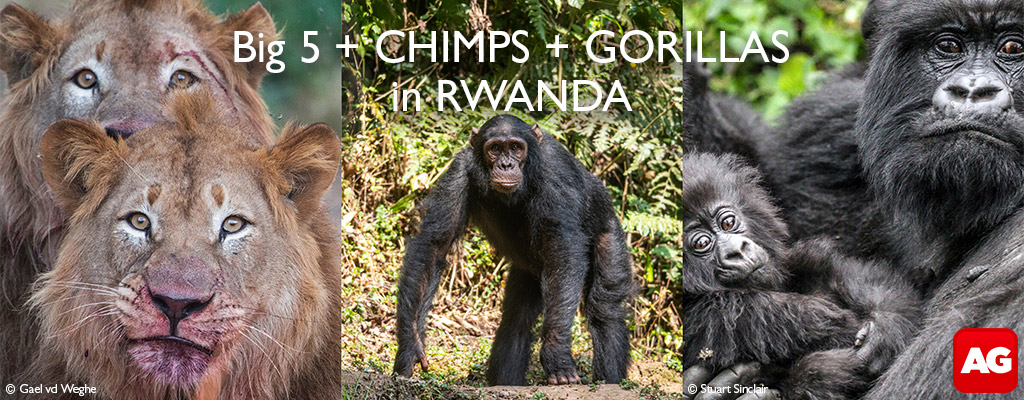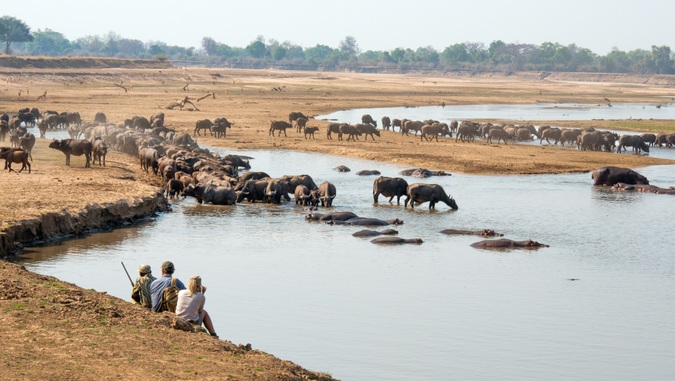
[A link to the petition to declare the Luangwa River as a Water Resource Protection Area is available at the end of the article]
Zambia’s wildlife paradise and legendary safari mecca of Luangwa Valley may in future partially function as one giant tap for some of Zambia’s growing water needs. Gone will be the seasonal, natural water cycles that sustain and nurture this incredibly fecund river valley. You see, a sizeable chunk of Luangwa Valley may be dammed in the near future, at Ndevu Gorge (see map below). Ironically, South Luangwa was in late 2017 declared as the world’s first sustainable National Park by United Nations World Tourism Organisation.
In a study on the Potential Impacts of the Proposed Ndevu Gorge Dam conducted by California State University Monterey Bay (2017), it is estimated that the resulting 1,510 km² Lake Ndevu, with its 80-metre-high dam wall, would inundate 29.5% of the length of the Luangwa River within South Luangwa National Park, at least six safari camps, and as much as 80% of adjacent hunting areas. It would also inundate portions of at least six chiefdoms adjacent to the river.
In addition, it would reduce the area of the valuable wildlife corridor between South Luangwa National Park and Lower Zambezi National Park to the south, by 50% of its length and 24% of its width. For this study ZCP and WWF provided guidance and datasets, then the CSUMB conducted the study.
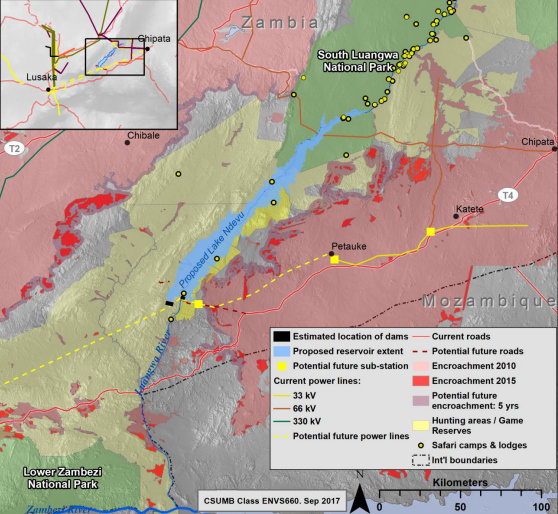
The Luangwa River Valley currently provides a mosaic of diverse habitats, including riparian forest, grassed dambos, floodplain grassland and deciduous woodlands. The natural hydrology of the Luangwa River allows for flooding in the rainy season – December to April – creating seasonal wetlands, oxbow lakes, sandbars and other features that create a rich habitat for plants and wildlife.
The Luangwa Valley is home to several species on the IUCN Red List, such as wild dogs, grey crowned cranes, elephants, lions, leopards, hippos and Maasai giraffe (formerly known as Thornicroft’s giraffe).
Dams have a considerable impact on biodiversity and wildlife. They disconnect rivers from their floodplains and wetlands, slow down river flows, disrupt sediment movement, fragment freshwater habitat and disrupt natural flood cycles (WWF 2004).
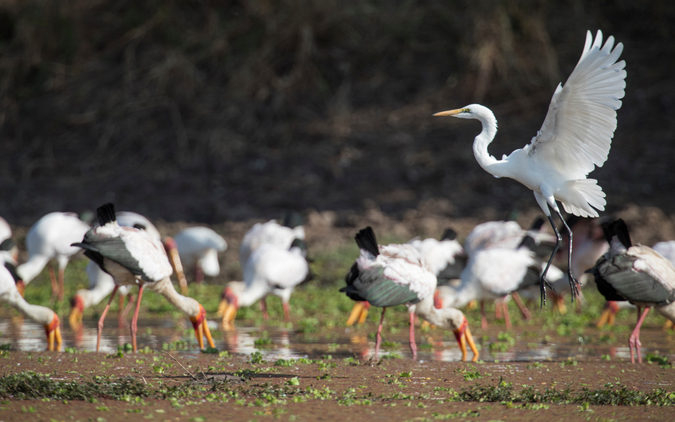
Importantly, Lake Ndevu may further constrict the vital movement of migratory/dispersal species such as elephants, lions and wild dogs along the Luangwa River wildlife corridor between the Luangwa Valley and the Lower Zambezi area to the south. This is a vital movement corridor because the Luangwa Valley is otherwise cut off from other large protected areas. These species cannot sustain population viability without these dispersal and migratory routes, which provide access to other members of their species.
Added human encroachment and development could increase snaring as well as contribute to habitat loss and prey depletion.
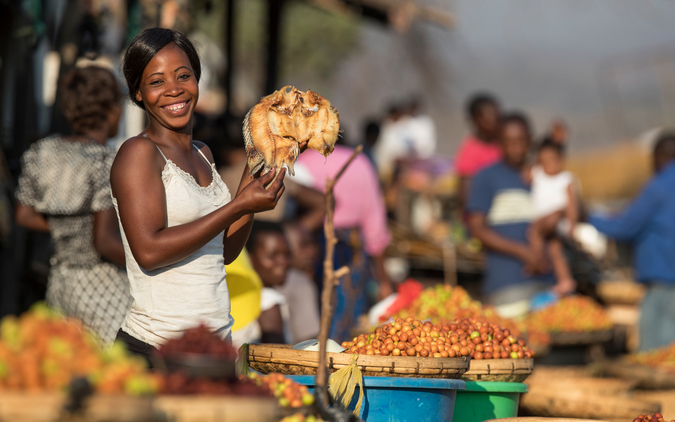
The massive Ndevu Lake will also affect the local communities spread across 25 chiefdoms. The river currently provides extremely valuable and crucial ecosystem services to these people, including safe drinking water, floodplain agriculture, fishing, goods and trade, wild fruit, honey, local construction materials and local crafts. The Luangwa River also has a significant cultural and spiritual heritage for the country.
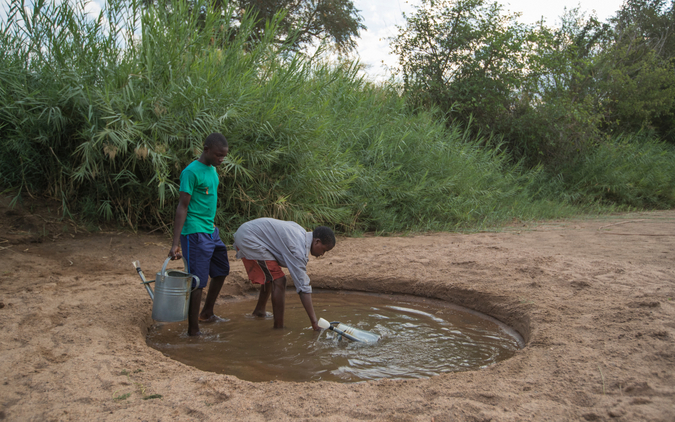
WWF Zambia is firm in its belief that Zambia does indeed need to develop its power supply (currently 90% via hydropower), along with its economic development initiatives. They believe that the Luangwa main river and key tributaries should however be protected as Water Resource Protection Areas, with guidance from the Water Resources Management Act No. 21 of 2011. They are also advocating for the importance of developing a National Integrated Water Infrastructure Plan (i.e. dams) that responds to people’s needs, environmental requirements at the catchment level, as well as the production of food and energy. “We are advocating for the right dams to be built on the right rivers and diversification of our energy sources while working towards meeting the country’s energy demand.”
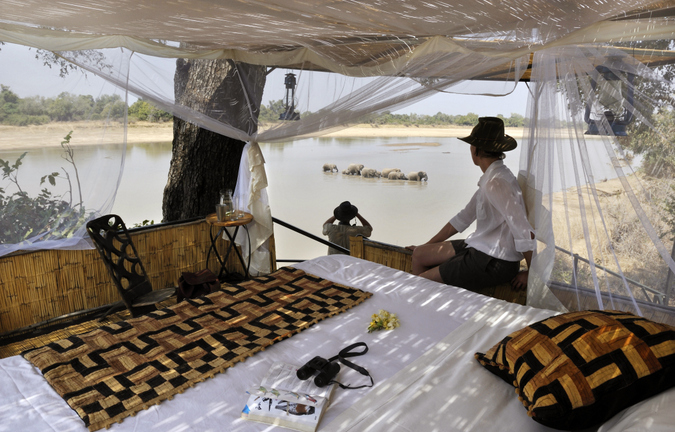
Several large dams already provide Zambia with power from the Zambezi River and its tributaries. Additionally, a new project on the Zambezi at Batoka Gorge near Victoria Falls is set to commence soon. However, unlike other rivers in the Zambezi River basin, the Luangwa is still a free-flowing river with no dams – presenting a rare opportunity to preserve the natural state of a major waterway.
Supported by an advocacy and communications strategy, WWF Zambia has launched “Keep the Luangwa Flowing”, a campaign to secure 100,000 signatures from locals and many more from the international community to petition the President, His Excellency Mr Edgar Chagwa Lungu, to declare the Luangwa a Water Resource Protection Area.
The petition is available on their website www.wwfzambia.org.zm
Do the right thing.
Watch the “Keep the Luangwa Flowing” campaign advert below
To comment on this story: Login (or sign up) to our app here - it's a troll-free safe place 🙂.![]()

